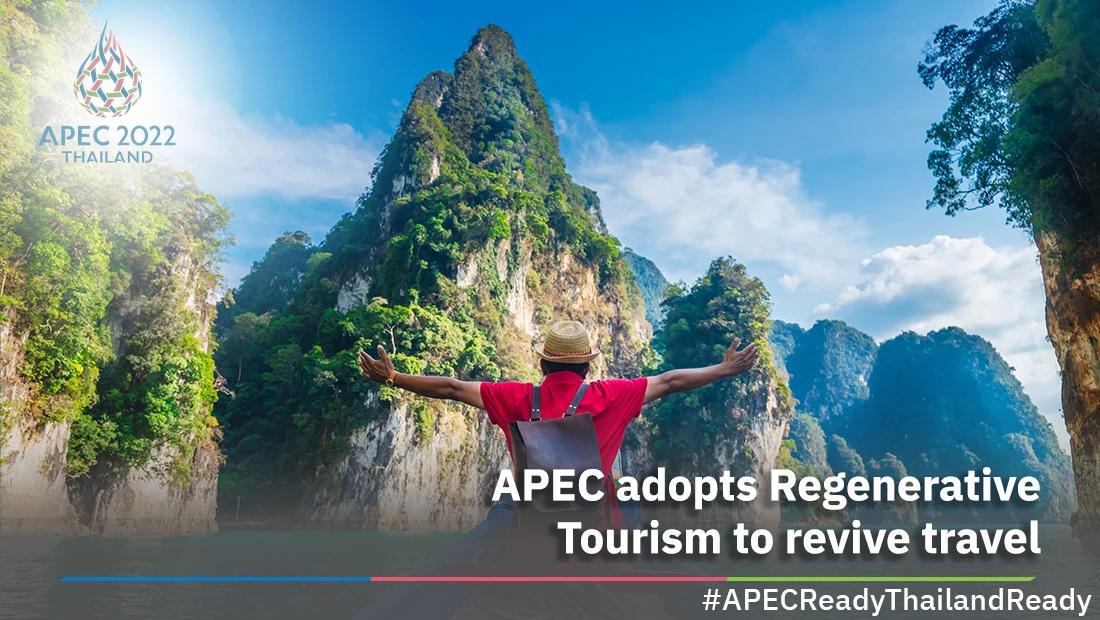Following over two years of restricted travel and closed borders due to the COVID-19 pandemic, a core task for Thailand as host of APEC 2022 is to place tourism across the region back on a path of growth.

At the 11th APEC Tourism Ministerial Meeting held in Bangkok on 19 August 2022, it was highlighted that APEC member economies had the opportunity to coordinate their policies to revive the tourism and travel industry with not only enhanced safety but also greater sustainability, responsibility, and inclusivity.

The statement released from the APEC Tourism Ministerial Meeting reflected these aspirations by marking Regenerative Tourism as the goal for future tourism to and within the 21 member economies of APEC.

Ahead of the meeting, Thailand has declared that it will use its leadership role in 2022 to push forward the APEC Policy Recommendations on Regenerative Tourism with the aim of paving the way forward to a future of tourism that "ensures that the industry contributes to all types of well- being locally."

The goals of Regenerative Tourism are already in line with the Thai government's Bio-Circular- Green or BCG Economy Model, which has been implemented to revive Thailand's tourism industry safely, inclusively, and sustainably.

Endorsed guidelines by attending ministers have set a course for rebuilding the tourism industry across the region "through investment, the creation of employment opportunities, human resource development, occupational standards, and support for small businesses".

The guidelines update advice from the pre- COVID-19 era and emphasize the need to reduce barriers that have a direct impact on visitor exports and tourist flows in the region.

A core set of seven guiding principles were adopted to support Regenerative Tourism. They call for policies and programs to respect local resource custodians, traditions, and culture; to enhance sustainable and responsible travel and tourism; to encourage the exchange of information and open dialogue; to foster human resource development, skills training, and occupational standards tools for a stronger industry workforce, including workers with disabilities; to utilize innovative technologies to improve economic, social, cultural, and environmental well-being, as well as establish partnerships; to identify synergies and utilize resources through public-private partnerships to encourage tourism investment in the APEC region; and to strengthen the resiliency of tourism to prepare for future shocks.

The statement is an affirmation that tourism officials in the region are aware that smaller entities in the tourism sector have been impacted by challenges such as COVID-19 and that a re-energizing of travel should address such effects for prosperity in the long run.




Inga kommentarer:
Skicka en kommentar